About Us
Advertise With Us
RSS Feed | Content Syndication
Terms & Conditions
Privacy Policy
Contact Us
BollywoodShaadis.com © 2025, Red Hot Web Gems (I) Pvt Ltd, All Rights Reserved.
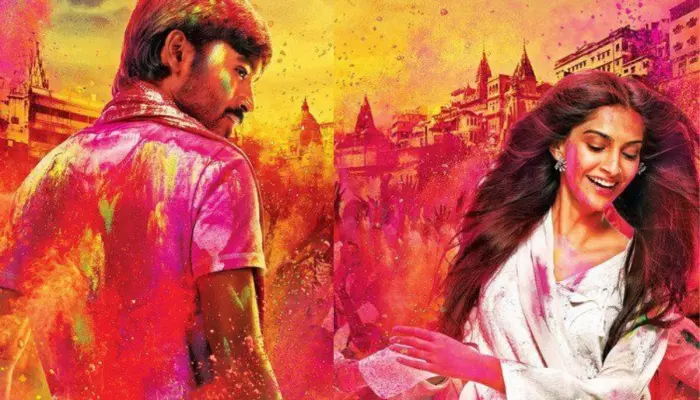
Over a decade after its release, the 2013 cult romantic drama, Raanjhanaa has hit the theatre again and this time it has gone viral thanks to an AI-generated happy ending that has reimagined the film’s tragic finale. While some viewers are embracing this alternate version with cheers and nostalgia, the majority including lead actor, Dhanush and director, Aanand L. Rai are outraged. For them, the new ending not only distorts the film’s emotional depth but also raises serious concerns about the misuse of AI in cinema and art. So, what really happened at the end of Raanjhanaa and why is the AI-altered version sparking such backlash? Let’s break it down.
Set across Varanasi and Delhi, the film follows ‘Kundan’, played by Dhanush, a Hindu boy who falls obsessively in love with ‘Zoya’, played by Sonam Kapoor, a Muslim girl. Despite hurdles and heartbreak, his love only deepens for her, which causes a lot of trouble for both of them alike. The narrative throughout the second half builds toward a tragic climax for ‘Kundan’ where he faces repercussions for his madness, and even then his love runs so deep that he knowingly embraces his death to pursue his unrequited devotion. Even when ‘Zoya’ had not returned his affection, his deep love for her that crosses the boundaries to obsession and madness leads to his ultimate demise.
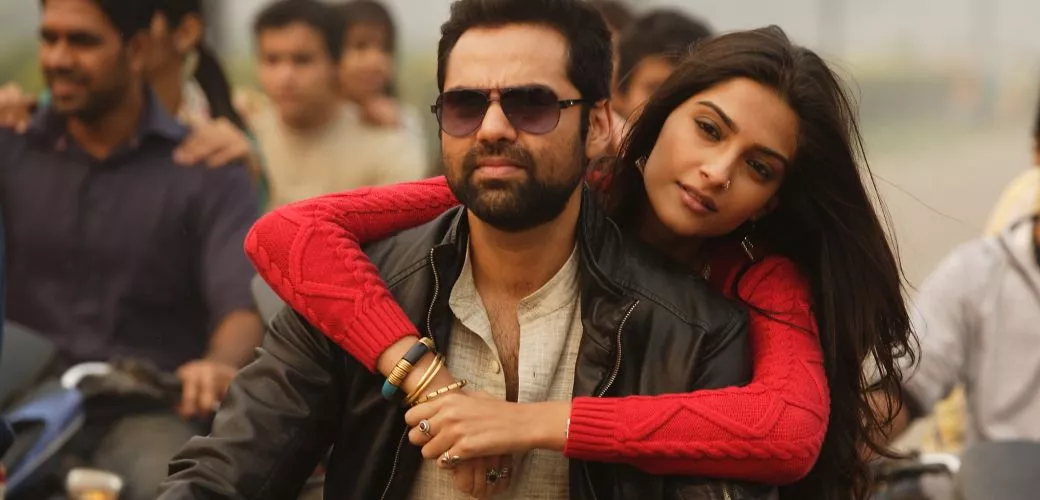
In the climax of the 2013 original, Raanjhanaa ‘Kundan’ is fatally shot during a public rally, and dies in the hospital. ‘Zoya’ plays a role in his ultimate demise, and even with the knowledge of the plot that has been set against him, 'Kundan’ decides to embrace his end. His death is poignant and grounded by his iconic last monologue that became an instant fan favourite and highlight of the movie. The monologue, if not, justifies his action, it somewhat, gives a reason to the audience behind ‘Kundan’s’ deed.
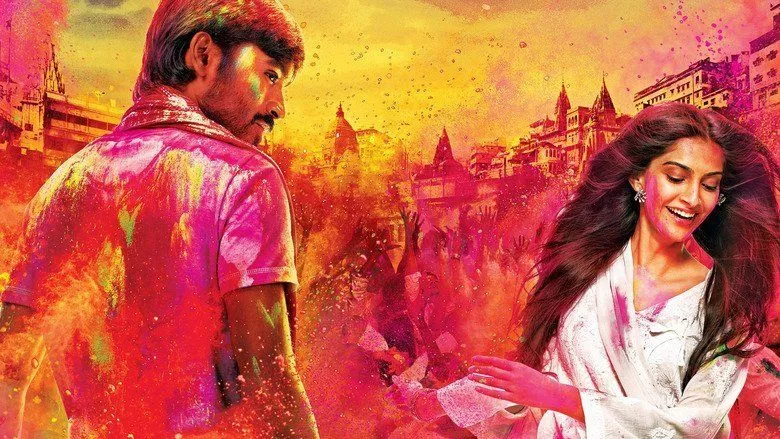
The monologue is a tragic conclusion that gives the film emotional depth that is rooted in realism. It shows how, when love crosses the line of obsession, it is destined to end up hurting you. At the same time, 'Kundan' wishing to meet 'Zoya' at the ghats of Varanasi once again to love her shows how love transcends any and every boundary, regardless of consequences. This bittersweet ending, where 'Kundan’s' action causes his death, yet his flawed love for 'Zoya' urges him to do it all over again, made the viewers love and hate 'Kundan' at the same time. He was flawed, but he was real, just like the ending.
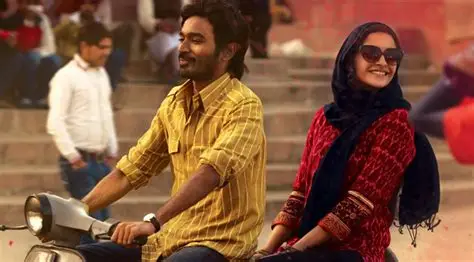
The original ending reflected realism in the sense that every action has consequences, and just because 'Kundan' was the main lead didn’t mean he was above these consequences. Everything that happened in the end was a by-product of his own doing. Some have pointed out that the film also drew inspiration from classic tragic love stories like Heer-Ranjha, where love is intense but never complete. It reminded viewers that obsession doesn’t lead to happy endings. What made the film powerful was 'Kundan’s' redemption; he changes from an obsessed man to a self-aware lover who makes a choice. This gave the story a meaningful and emotional ending that fans still connect with.
Continue reading below
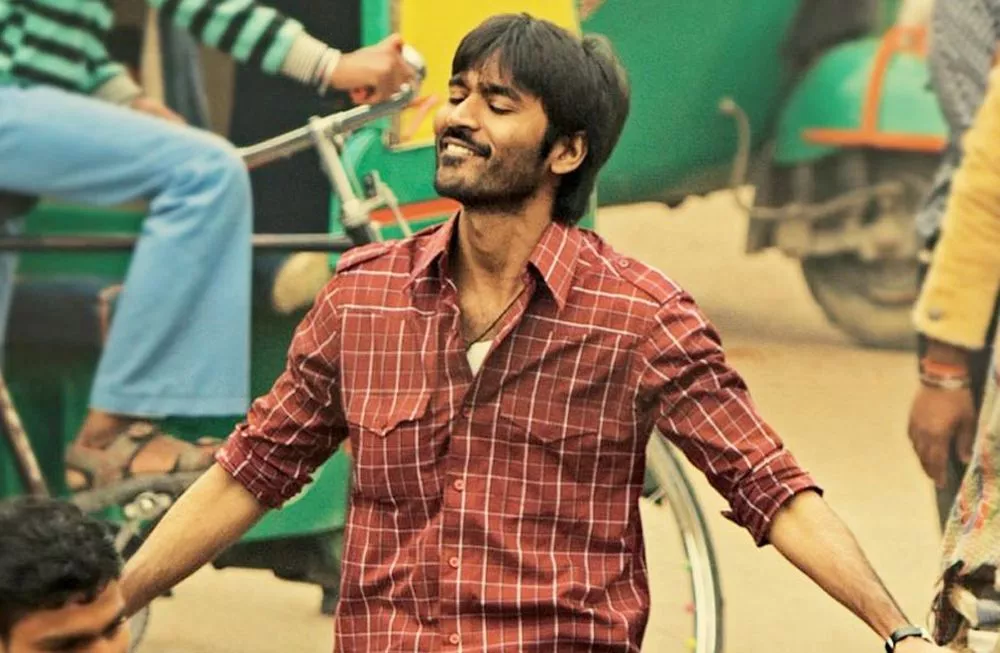
In the re-released Tamil version, Ambikapathy, the ending was changed using AI, and instead of dying, 'Kundan' wakes up in the hospital and survives, smiling with 'Zoya'. Fans, critics, the director as well as the actor are all angry over this change. Dhanush stated that the new ending ‘stripped the film of its very soul’ and that this is not the film he committed to 12 years ago. Director, Aanand L. Rai condemned the change as ‘unauthorised’ and 'disrespectful,’ emphasising that none of the original cast or crew were even consulted.
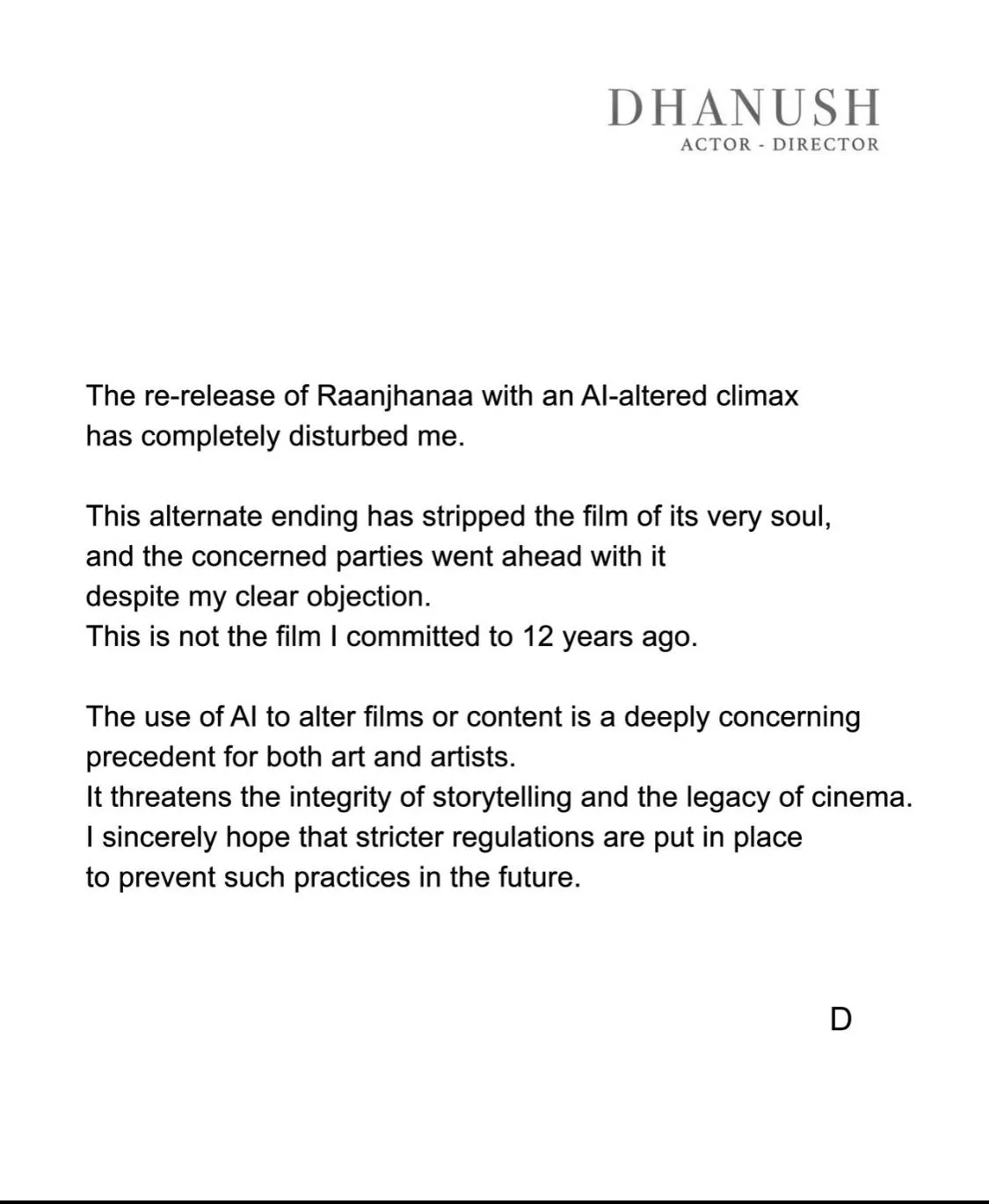
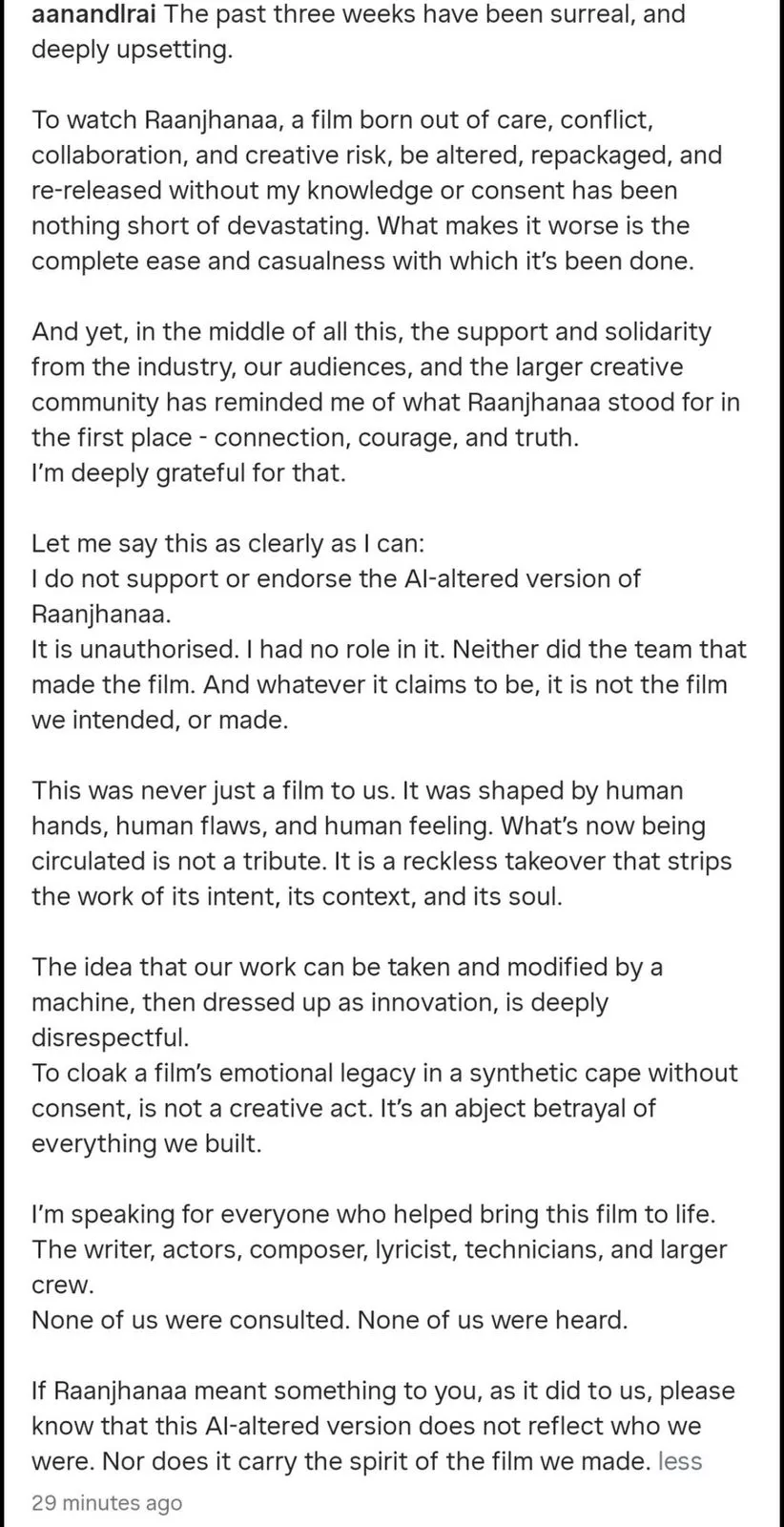
Fans and critics argue that some films, especially emotionally complex ones like Raanjhanaa, are not meant for a ‘happy ending’. Many felt the AI version erased the film’s emotional weight and the character growth of 'Kundan', and took to their social media account to express their disappointment. A user commented, “The whole reason Raanjhanaa actually worked even after a weak second half was due to its ending.” Another one said, “They just killed the soul of movie instead of Kundan.”
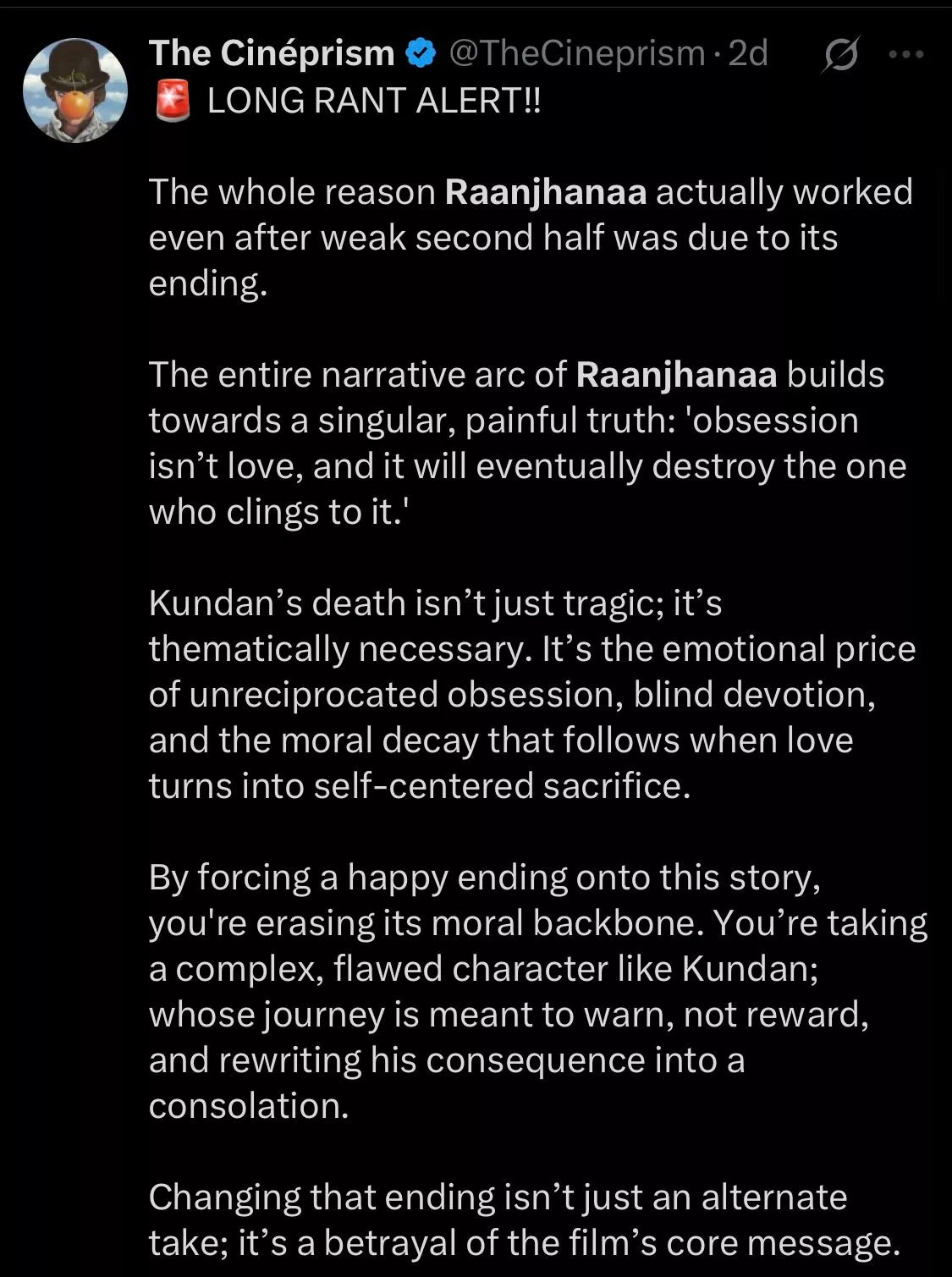
Raanjhanaa never needed a happy ending; it was memorable precisely because of how it ended. It was flawed, honest, and heartfelt. The AI-altered climax may satisfy some curious viewers, but for the majority and creators alike, it represents a troubling precedent of altering cherished art without consent, and reshaping stories for convenience rather than the meaning.
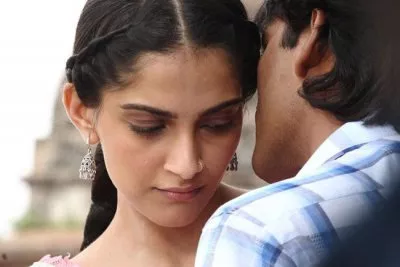
What are your thoughts about Raanjahanaa's new AI ending?
Also Read: 'Mahavatar Narsimha' Ends With Prahlad's Crowning, Will There Be A Sequel To The Film? Find Out
advertisement
advertisement
advertisement
